32 ways to make yourself happier
You can make yourself feel happier in seconds by switching up your routine and trying something different. Here are the proven methods that work quickly


Knowing a few ways to make yourself feel happier can be a game-changer when you're feeling low. From changing lifestyle habits to adding something new to your routine to put a smile on your face, these are the ways that have been proven to work quickly.
Everyone feels low sometimes. Whether it's stress and anxiety about work, feeling like things aren't going your way lately, or just a bad day, it's a good idea to have a few healthy mood boosters in your back pocket.
While none of these solutions are alternatives to proper mental health help and intervention, if you're feeling low and looking for a pick-me-up, we've got you covered.
32 ways to make yourself happier
1. Get some fresh air

Getting outside is one of the easiest things you can do to feel happier. Naturally, being outside allows the body access to more fresh air and oxygen, which is essential for our bodies and a known contributor to our serotonin levels.
Also called the 'happy hormone', when our serotonin levels are high, we feel happier and more relaxed.
2. Eat for happiness
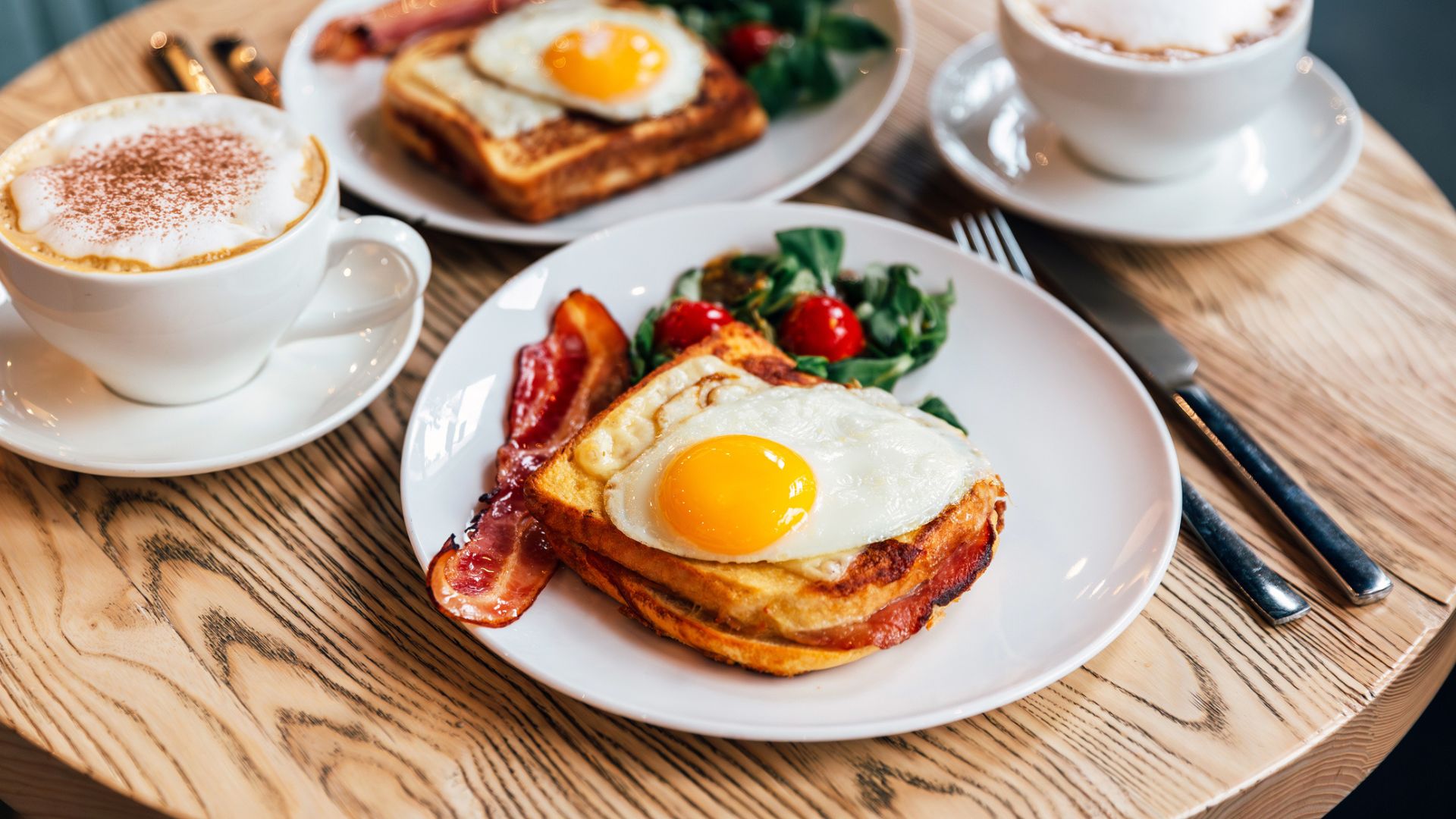
Many people reach for food when they want to feel happier and it's a great solution - but it needs to be the 'right' kind of food to make a difference. There's nothing wrong with takeaways as a treat but if you really want to perk yourself up, it's got to be foods that will lift your mood - usually ones high in protein, fibre, and complex carbohydrates, such as eggs, nuts and seeds, low-fat dairy products, wholegrains, and fish.
These will all help to stabilise your blood sugar levels. Plus, they are rich in vitamin B and magnesium, two nutrients that have been shown to lessen feelings of sadness by helping to boost serotonin (i.e. the 'happy' hormone) levels in the brain.
Sign up for the woman&home newsletter
Sign up to our free daily email for the latest royal and entertainment news, interesting opinion, expert advice on styling and beauty trends, and no-nonsense guides to the health and wellness questions you want answered.
3. Get some sleep
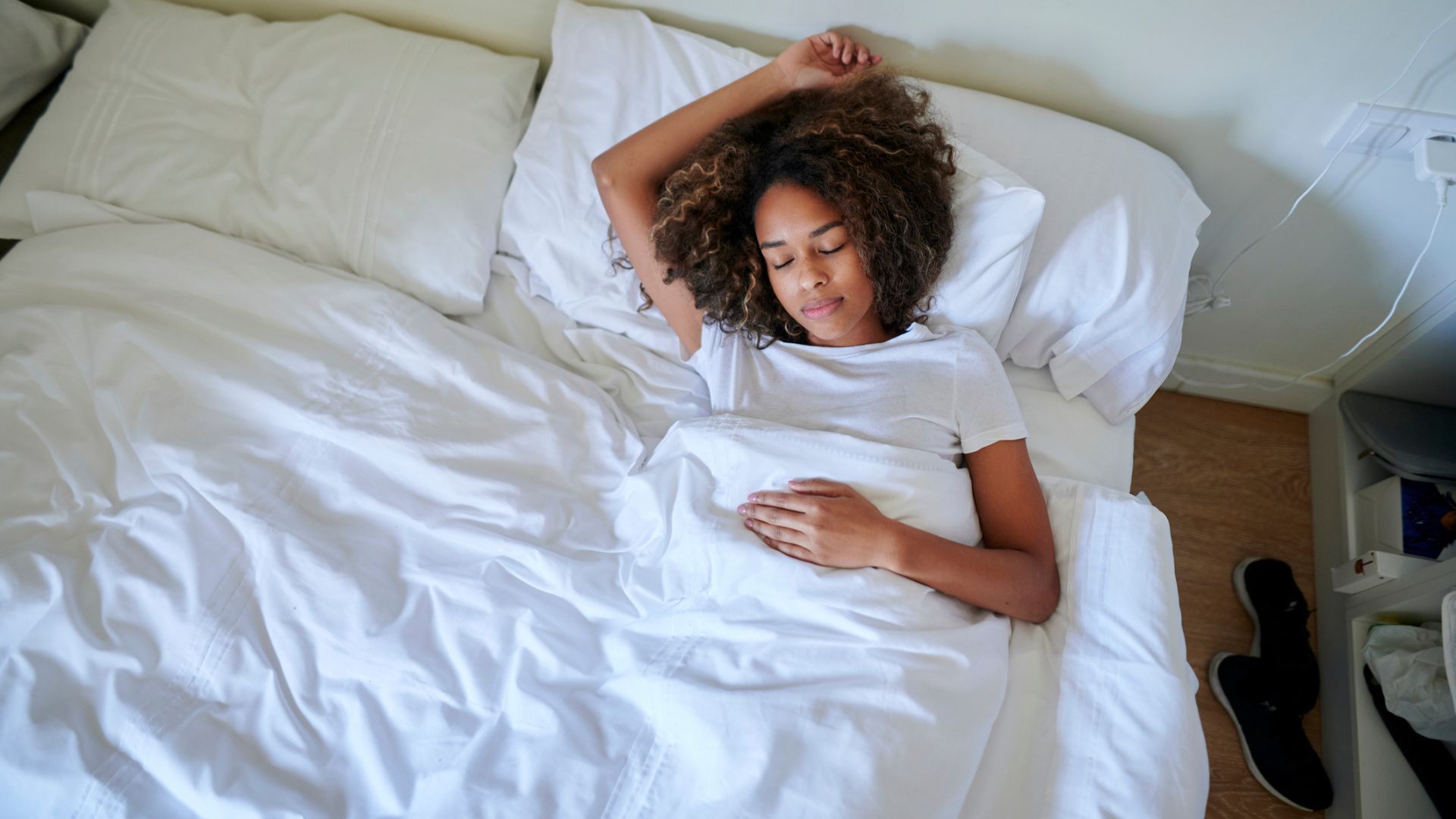
There's not a lot that good sleep can't fix. It's essential to how we feel throughout the day, our mood, energy levels, and sense of achievement.
When we sleep, our body is regulating vital processes such as heart rate, breathing rate, and blood pressure. It also releases important hormones that help the body to grow and repair after the stress of the day. During sleep is also when we consolidate our memories, get rid of information we don't need, and reorganise.
4. Go for a walk
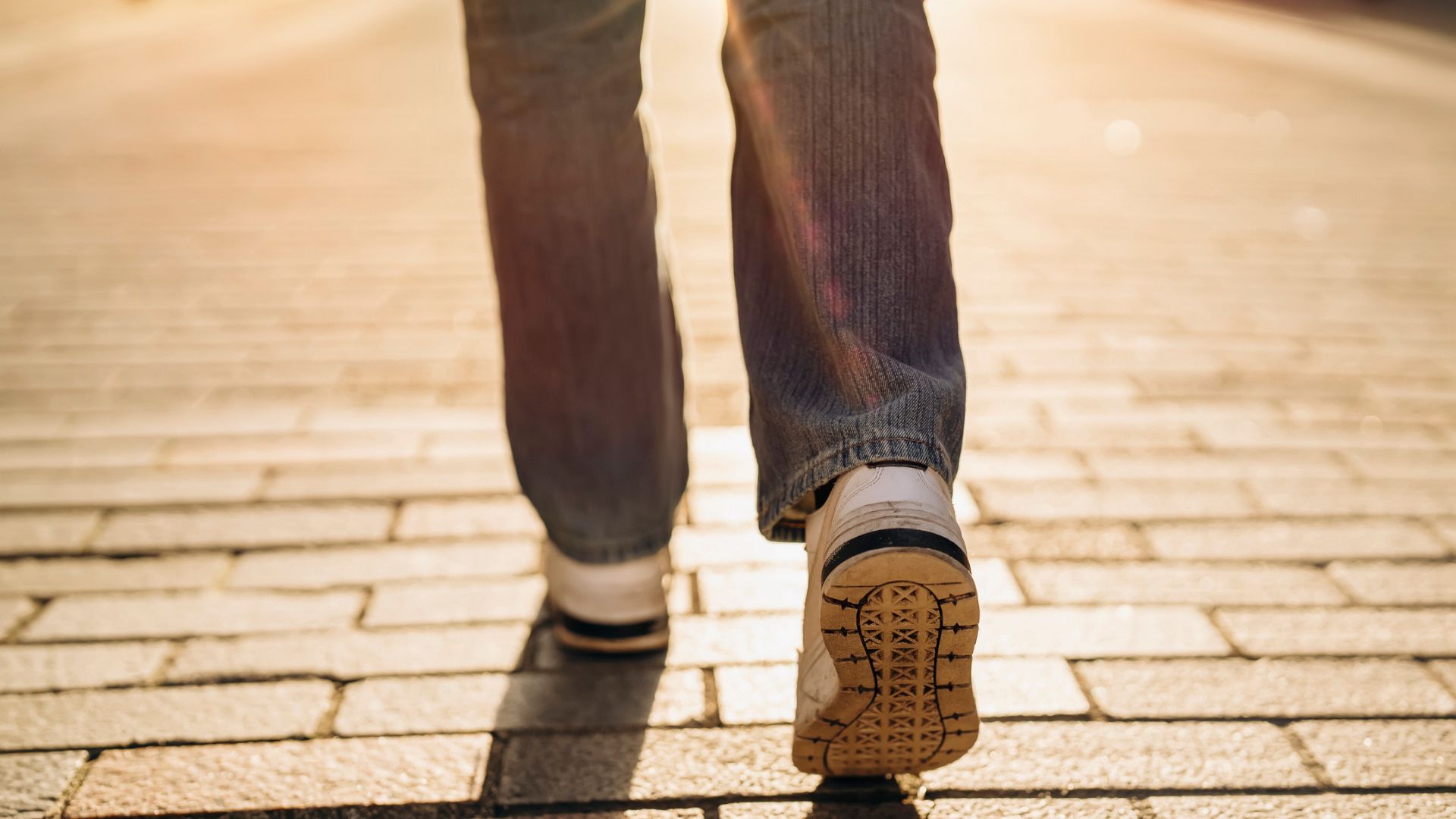
Walking is one of the best go-to options to boost your mood and help you feel happier. As soon as you start moving, blood flow around the brain and body increases, which has a positive reaction on the central nervous system in the body. This is the system responsible for the stress response (i.e. 'fight or flight' and 'rest and digest').
Taking a walk for as little as 10 minutes can help your body switch from 'fight or flight' to 'rest and digest', lowering your cortisol levels and helping you feel more in control.
5. Drink some water

Our health is built around four pillars: exercise, good nutrition, relaxation and sleep, with hydration being a vital element of this. When we are dehydrated, whether we feel it or not, the body isn't functioning like it should be. Dehydration can lead to headaches, nausea, dizziness, and fatigue - none of which are going to make you feel positive about anything.
So, if you're looking for one of the quick ways to make yourself happier, have a glass of water or foods that will keep you hydrated.
6. Spend time with loved ones

Spending time with friends and family has been shown time and time again to improve our mental (and physical) wellbeing. When spending time with those you have positive relationships with, you're more likely to feel relaxed, less stressed, and happier.
It can also provide a welcome distraction from any negative situations you have elsewhere in life, while offering the chance to discuss any issues in an environment you feel comfortable in.
7. Spend time with your pet

We know that spending time with loved ones, family and friends, is essential for our wellbeing but spending quality time with your pet is also a sure-fire way to boost your happiness levels.
Research from Universidad Autónoma de Nuevo León shows that those who have a pet while experiencing a traumatic life event were more likely to experience higher happiness levels than those who didn't.
8. Clean the house
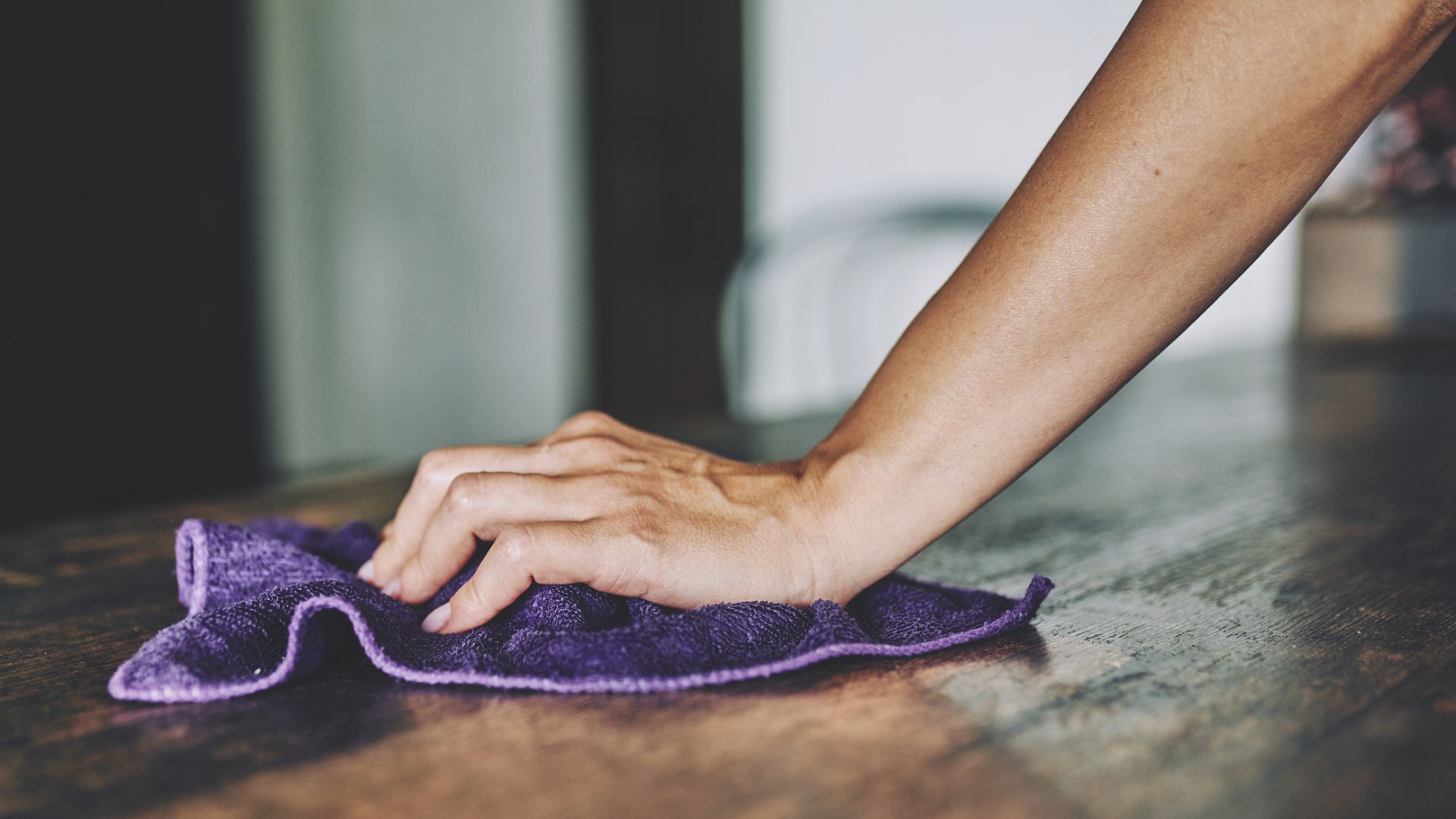
Though it's not everyone's idea of a good time, cleaning can actually make you feel happier. It provides an outlet for daily anxieties and negative emotions, and it's a way to relieve stress in a physical way that's not exercise.
Plus, you can reap the benefits. You know the saying - tidy house, tidy mind.
9. Watch animal videos

We know that spending time with a pet is a great way to make yourself happier - almost instantly. But for those without a furry friend, the researchers at Nankai University have come up with another idea.
In the study, published in 2020, the researchers suggest that you don't even need to own or spend time with a pet in person to reap the benefits - watching videos of animals can positively affect mood as well.
10. Avoid alcohol

It can be tempting to reach for a glass of wine to de-stress after a long day but this could be making your mood worse. Alcohol is a depressant - even though it might make you feel better in the moment, the chemical changes that occur in the brain after drinking are more likely to lead to negative feelings like anger, anxiety, or sadness.
Instead, switch to zero- and lower-alcohol drinks or distract yourself from the craving. If you think you may have a problem with alcohol, speak to your doctor.
11. Limit caffeine
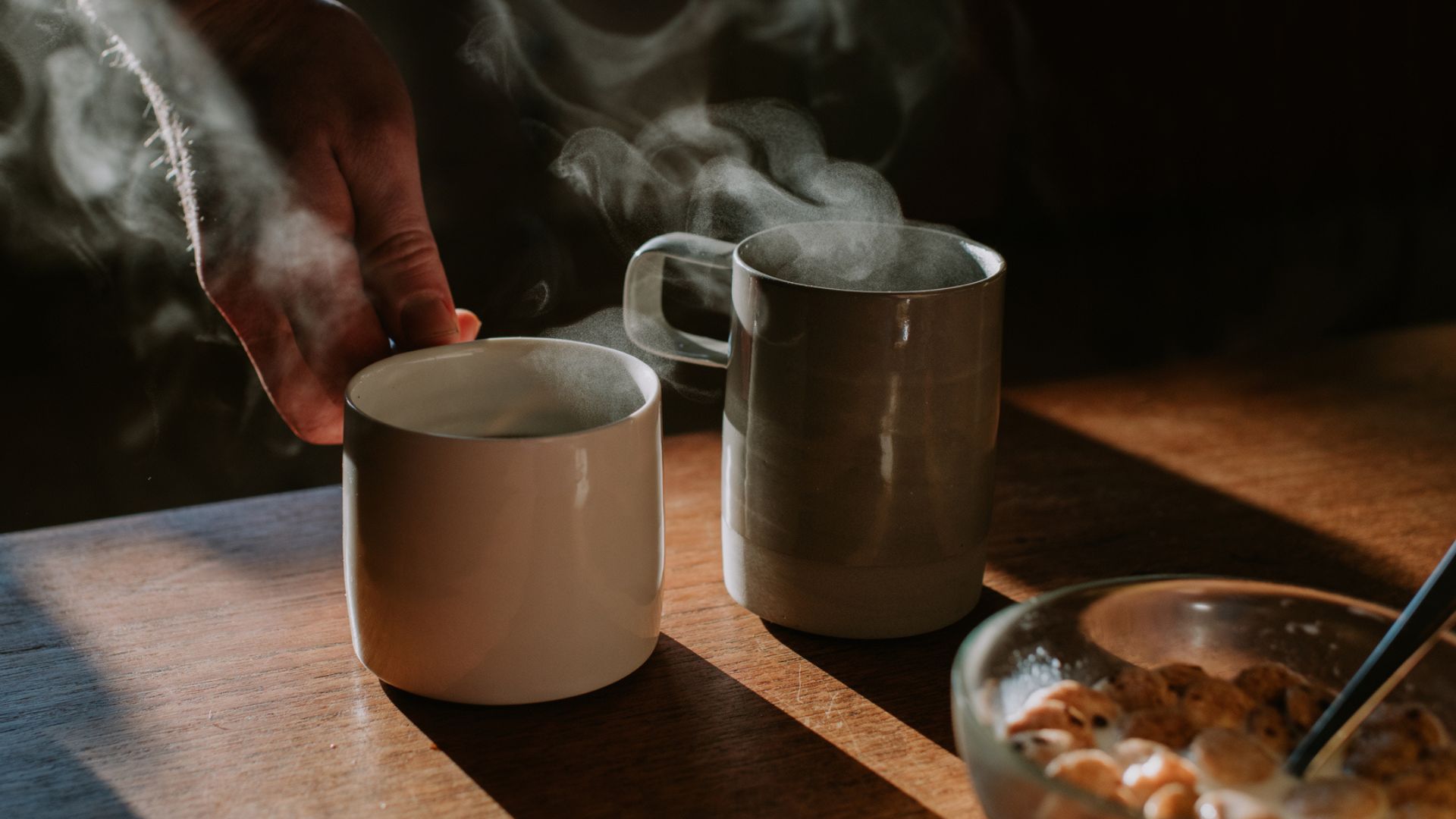
Just like it's a good idea to drink less when you're feeling down, so you can feel happier, it's a good idea to keep caffeine consumption to a minimum. While there's nothing wrong with a cup of coffee to start your day, too much caffeine can raise your heart rate and produce feelings of stress. Plus, caffeine close to bedtime can limit how well you drift off to sleep.
Opt for low- or no-caffeine drinks past lunchtime and know your limits.
12. Lift weights
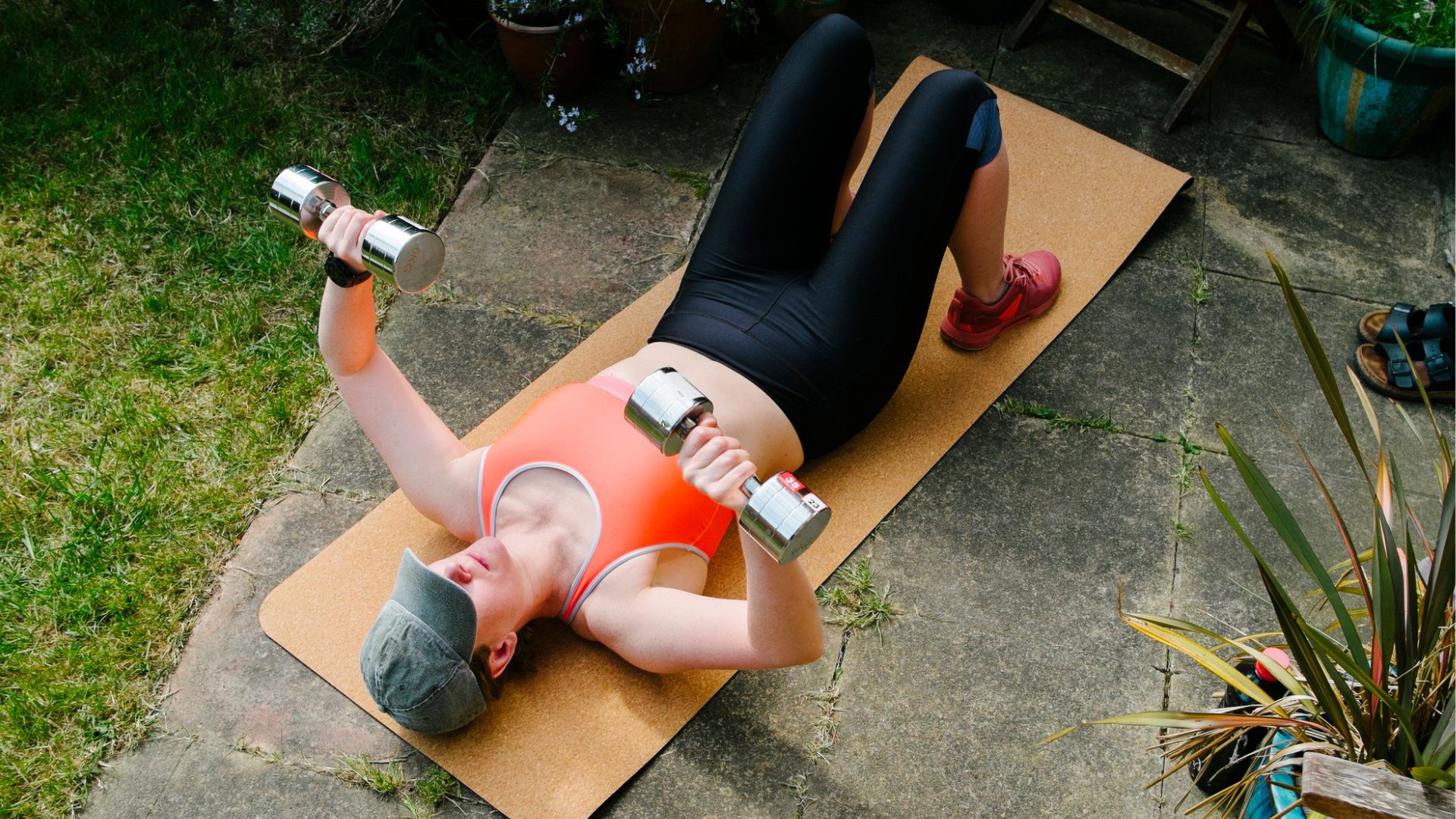
It won't surprise you that exercise can make you feel better. In fact, a study by National Cheng Kung University found that it has a major impact on your quality of life from a young age all the way through to the end of your life, impacting every element of your mental wellbeing from social interaction and self-confidence to motivation.
Lifting weights, whether that be strength training with dumbbells, weightlifting with a barbell or group exercise classes, is known to be one of the most beneficial as it triggers the release of proteins into the part of the brain that controls our mood.
13. Go to therapy

Talking therapy can help you better understand your emotions and explore why you might be feeling down. Therapists are trained to listen without judgement and, though they won't tell you what to do, they'll help you understand yourself better and encourage you to think about the changes you want to make with your life.
Three common types of talking therapy include cognitive behavioural therapy (CBT), dialectical behaviour therapy (DBT) and psychodynamic therapy.
14. Give someone a compliment

Giving someone a genuine compliment can make them feel great - but it can make you feel good too, boosting your happiness levels temporarily. If you give a compliment to someone you know, it can help maintain a positive relationship with that person and it feels good knowing that you've boosted someone's self-confidence and self-esteem.
They may even give you a compliment back, boosting your self-confidence and self-esteem in return.
15. Put your phone away
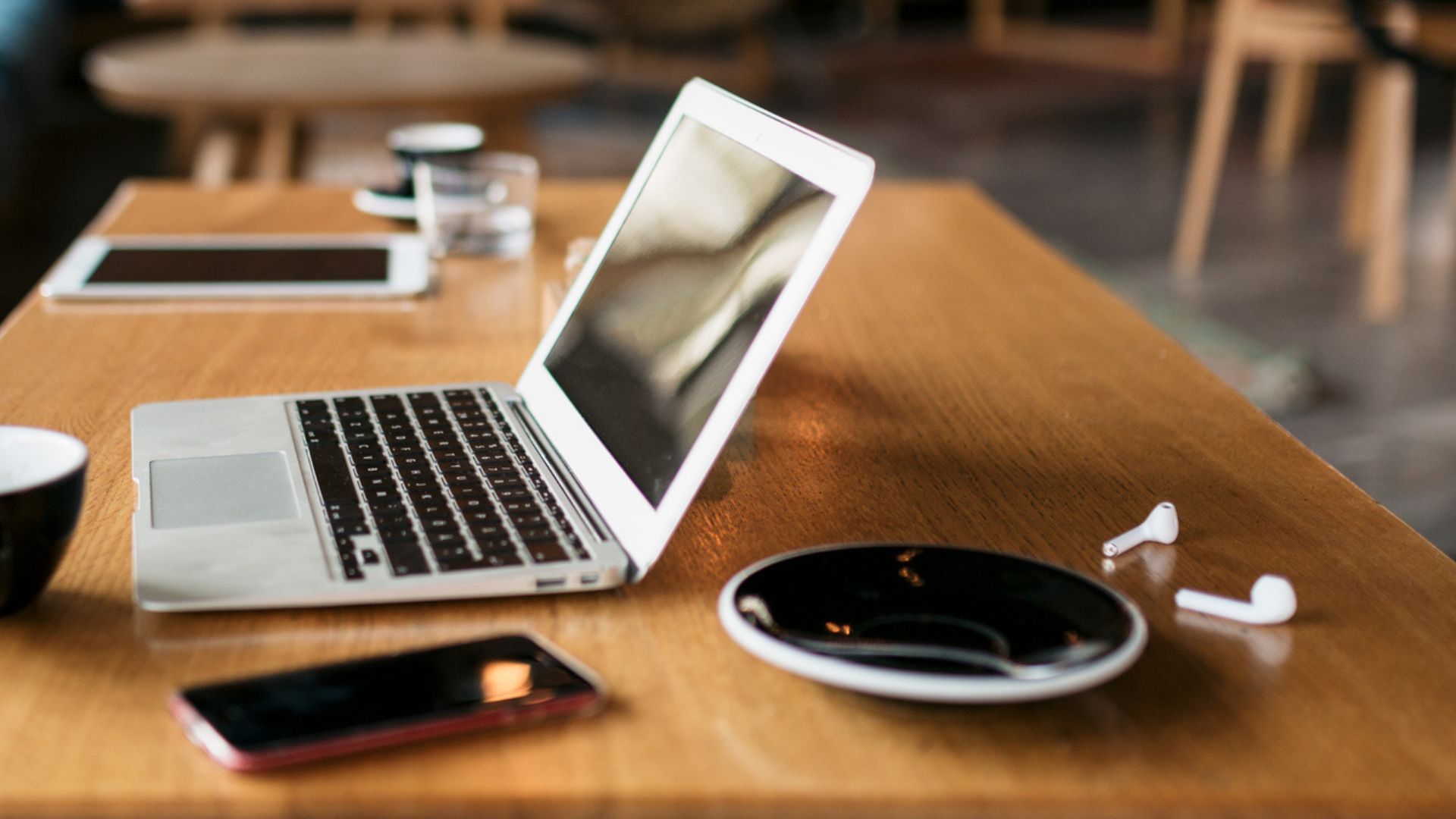
Waiting on text messages, looking at work emails outside of hours, or looking through photos with rose-tinted glasses isn't going to make you feel better. Instead, put your phone away and seek out a distraction.
For example, you might find a happiness boost in your favourite television show even though you've seen it before or in a new book on a subject that truly interests you.
16. Sign out of social media
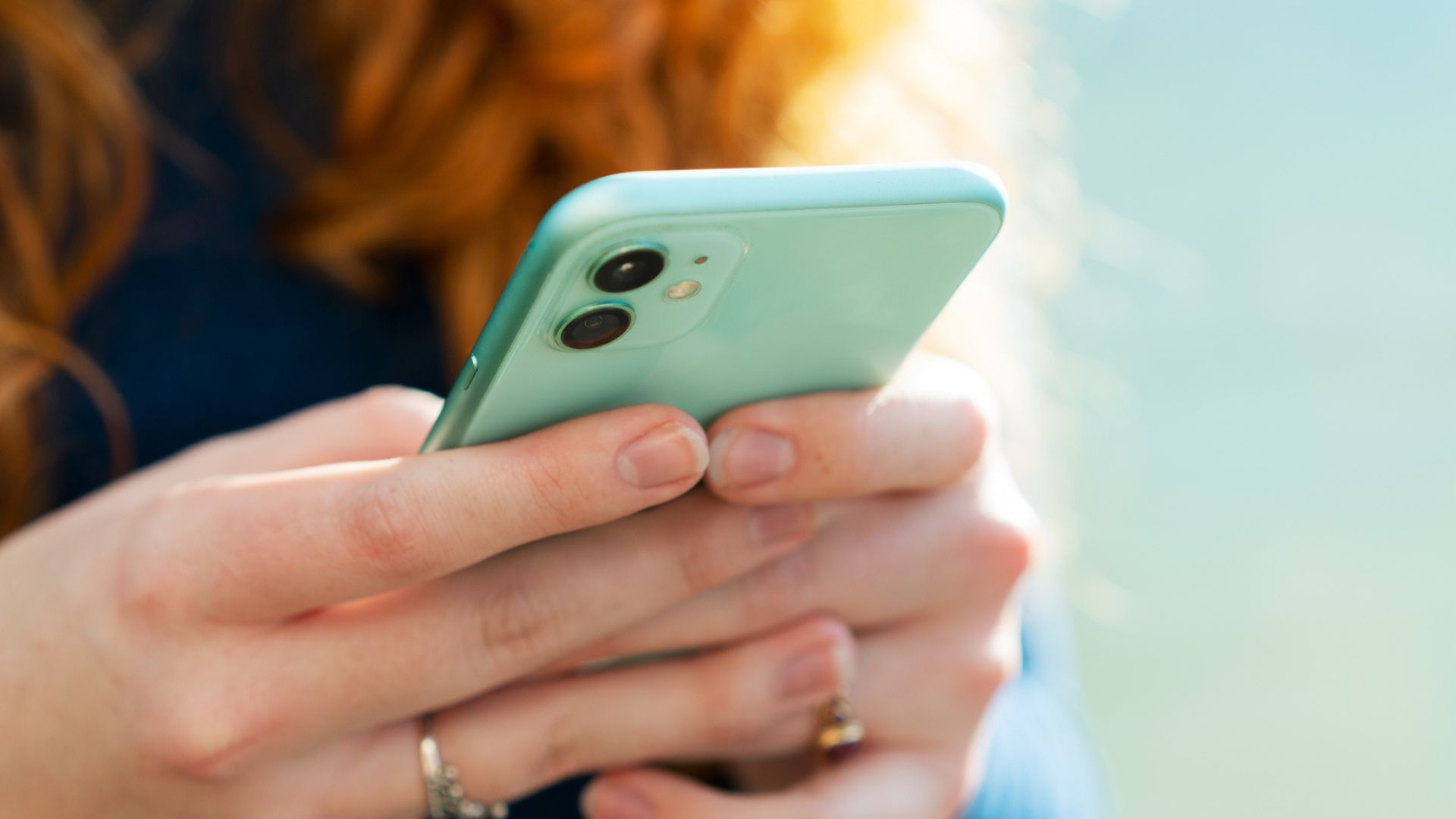
Putting your phone away when you don't need it, rather than aimlessly scrolling, is a good habit to get into if you're feeling down lately. But taking it one step further and logging out of your social media (or even deleting it) is another sure way to feel happier.
While social media undoubtedly has plenty of benefits for social interaction, it can also make us feel like we're missing out on something - even if we're not.
17. Talk to your partner
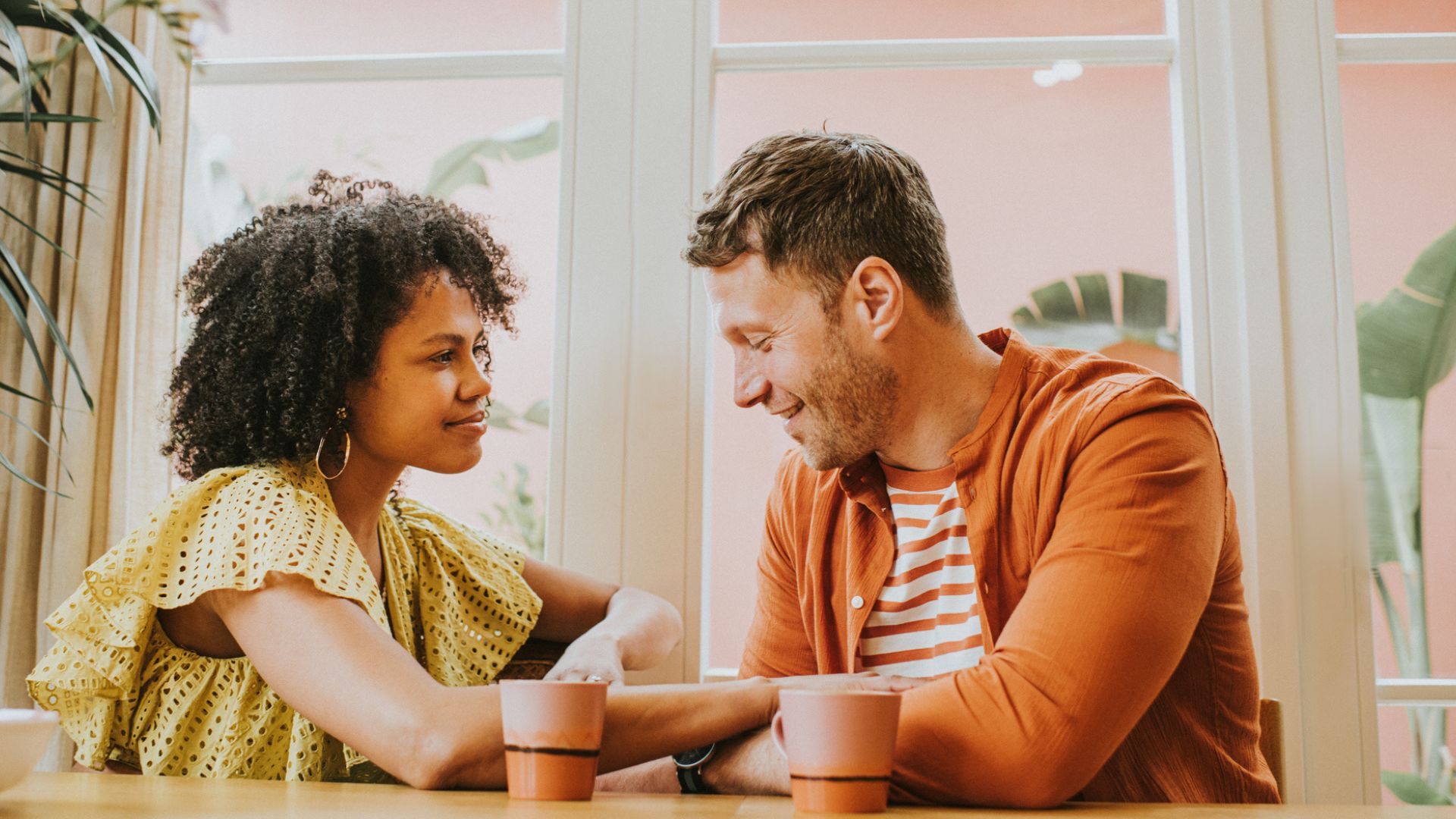
If you have a romantic partner, like spending time with them, and feel content in your relationship, see if you can spend a little more time with them - it's a guaranteed way to help you feel better.
See if you can schedule a date night in the next few days or weeks, something for you both to look forward to and give you a chance to reconnect.
18. Go for a run
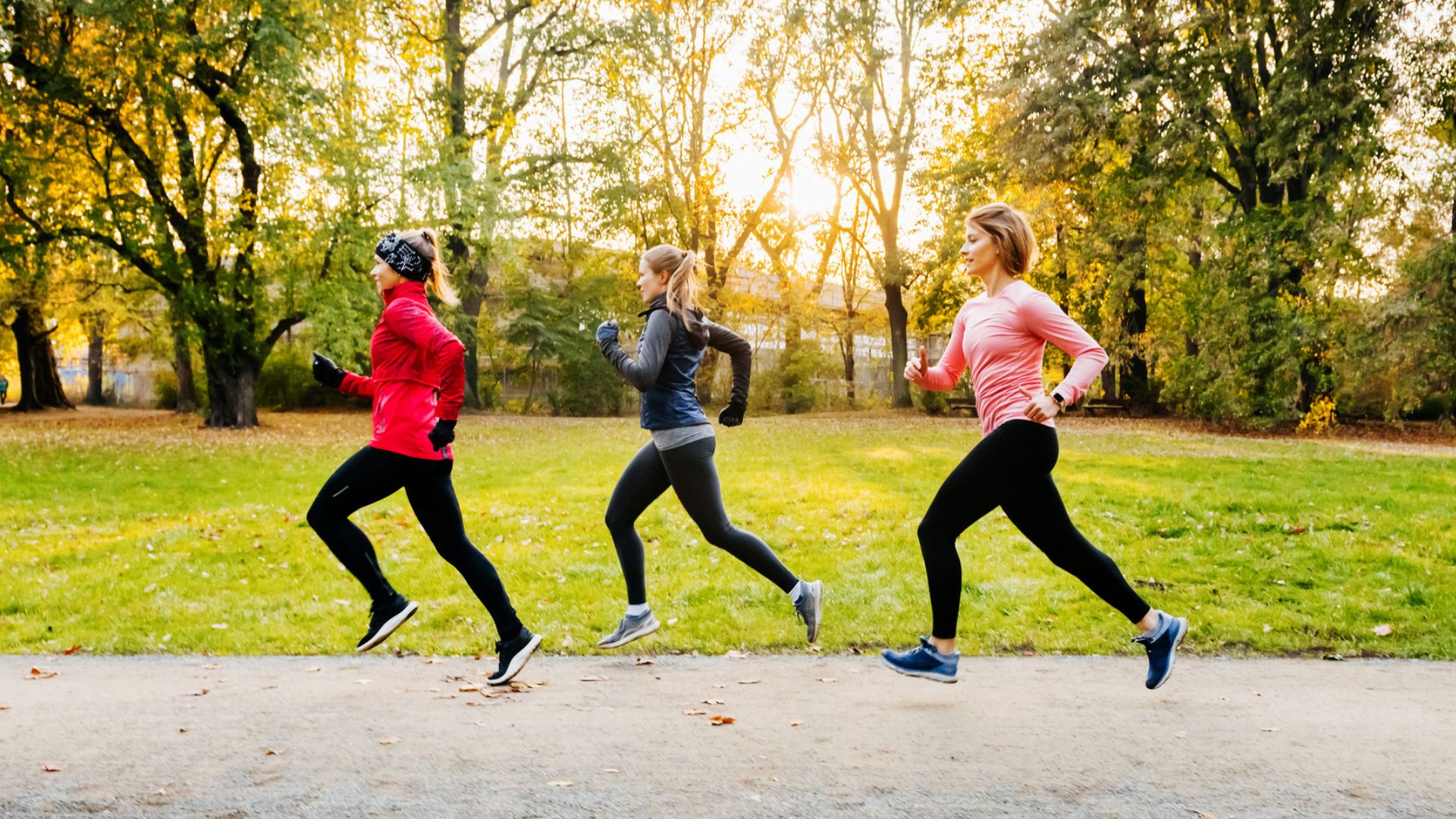
Exercise makes us feel better, that's been proven time and time again. When you work out, the brain releases endorphins - 'feel good' hormones that make us feel happier, less stressed, and more productive.
However, these endorphins are also known as 'runner's high' for good reason - you need to be exercising at a good pace for them to release. Running is a great exercise for this as it gets your heart rate up relatively quickly (and it's not that hard to start running as a beginner).
19. Declutter your workspace
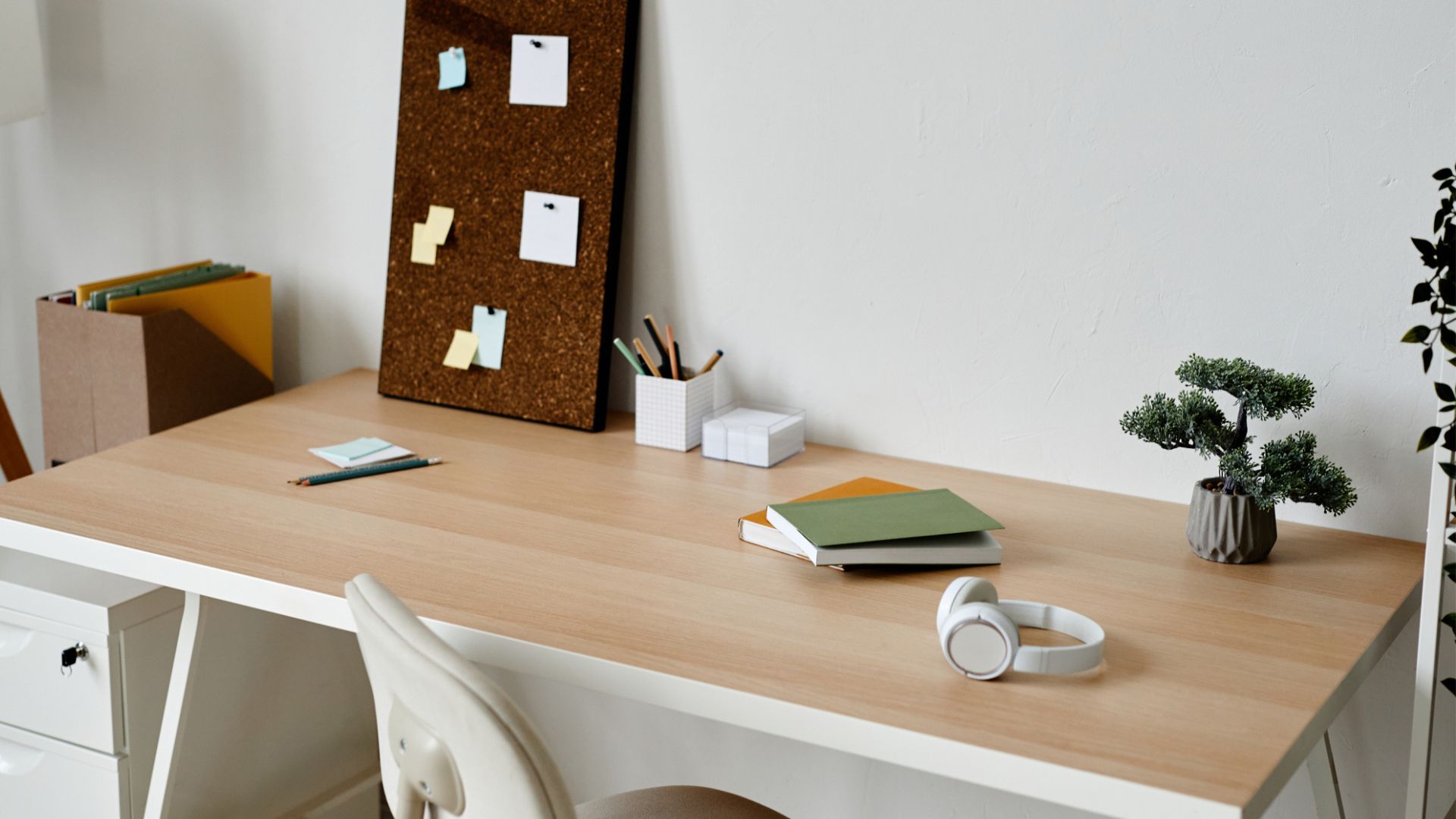
The phrase 'tidy house, tidy mind' doesn't just apply to where you live. If you're feeling stressed or down at work, a great way to make yourself feel happier is to declutter your workspace.
Whether it's plants that have seen better days on the windowsill or untidy wires around your electronics, decluttering is a good way to clear your workspace and your mind.
20. Try journaling your feelings
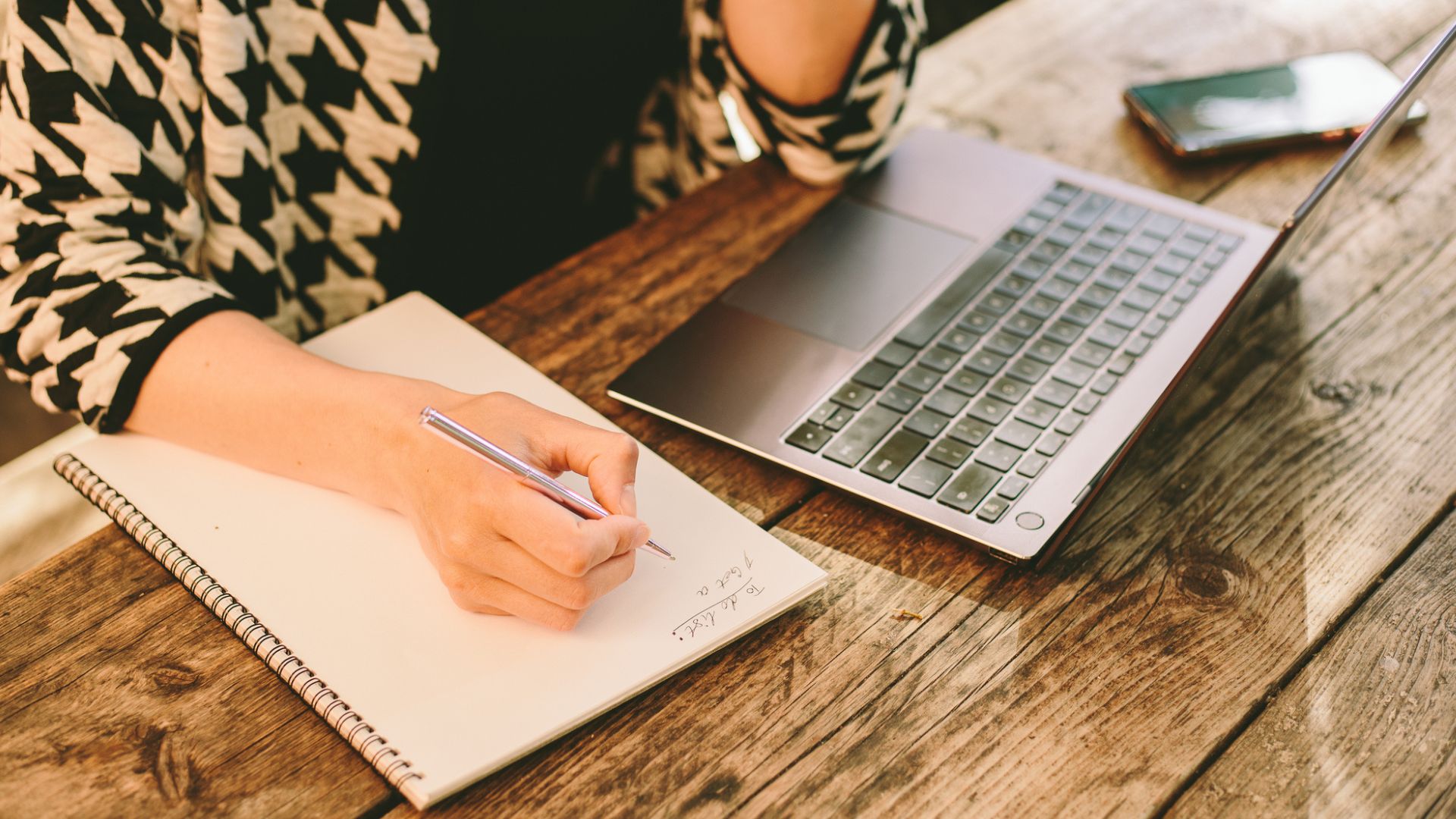
Just as talking therapy can help you sound out your feelings and understand your emotions better, helping you feel happier in the future, journaling can help you put your feelings down on paper and encourage you to look inward.
Plus, if you're not keen on talking to a therapist, journaling allows you to get your feelings across without saying a word.
21. Go to the beach

Fresh air, sand and natural salt water - three physical elements of nature that have been proven to boost happiness levels in just about everyone. It doesn't even need to be sunny or warm to feel the benefits of the beach.
Salty sea air has lots of negative ions, which are molecules floating in the air that have been charged with natural electricity, and they are believed to help alleviate feelings of depression.
22. Take a sound bath
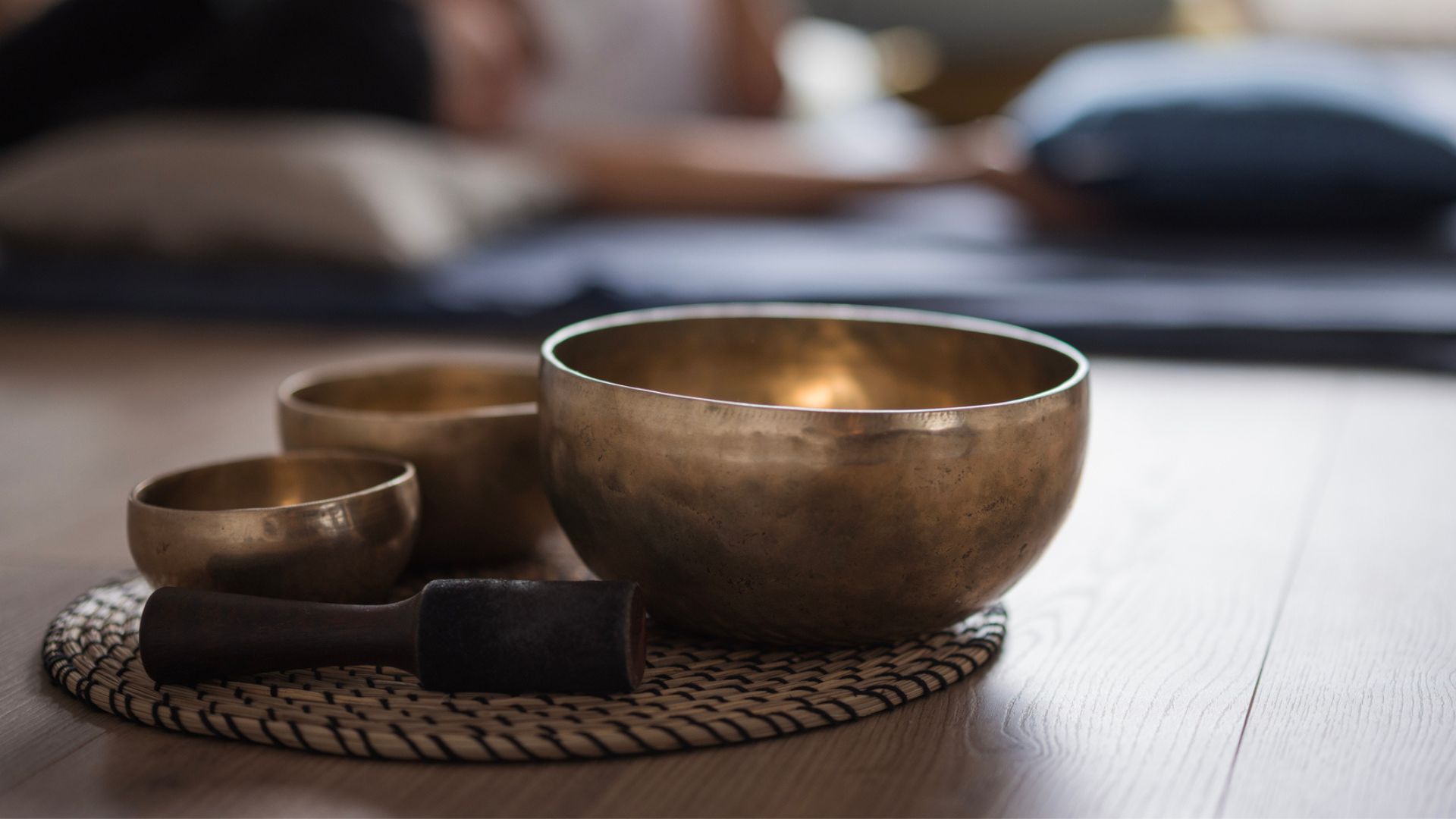
Sound baths have been conducted for thousands of years and practised by cultures around the globe - and for good reason. We know that sound can alter the way our brain behaves and soundscapes created by the percussion instruments and the human voice in some cases may cause a shift in brainwave activity.
These sounds and vibrations may just slow the brainwaves from normal functioning to a relaxed state, also known as beta to alpha. In deep states of relaxation, you might even experience theta (mediative) and delta (sleep-like) states of relaxation. Needless to say, this can make you feel happier and more relaxed.
23. Make a plan
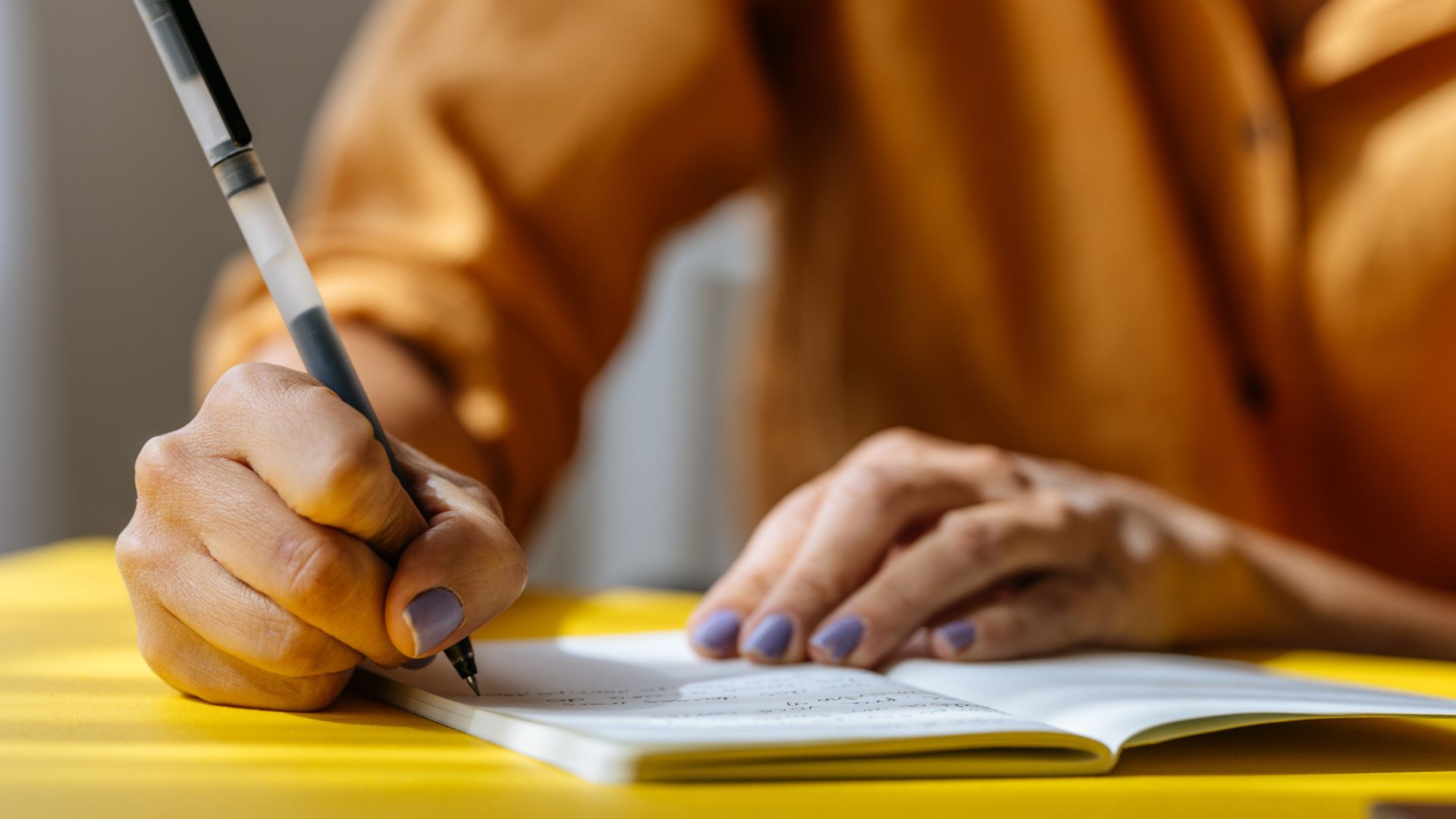
Having something to look forward to can offer your brain a small hit of dopamine, which can boost your happiness levels. If you're feeling low, think about what you've got coming up and if you've got enough plans in your diary that bring you a sense of happiness.
Whether that's spending time with friends, booking in a self-care day, or going on a trip, having a positive event on the horizon can boost your mood and your motivation.
24. Establish a morning routine
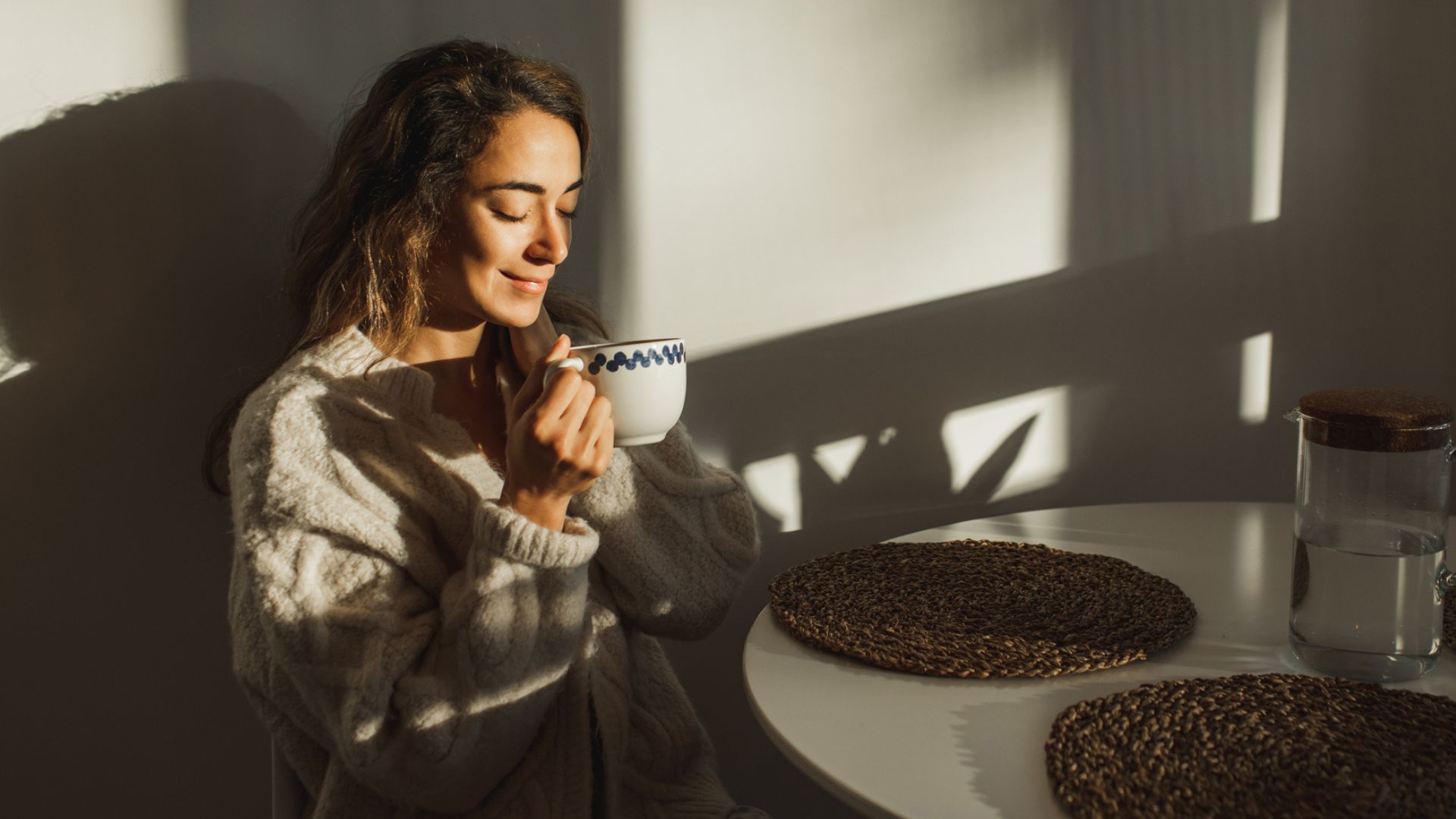
To start the day on a high note, establish a strong morning routine. Having a routine where you accomplish something first thing (even something as simple as making the bed), hydrate, and get some natural vitamin D, can help you feel happier earlier on in the day.
It also helps you feel in control of your schedule and know that you're prioritising your time in a way that's important to you, allowing you the chance to find time for other things that make you happy. For example, exercise or meeting with a friend.
25. Establish an evening routine
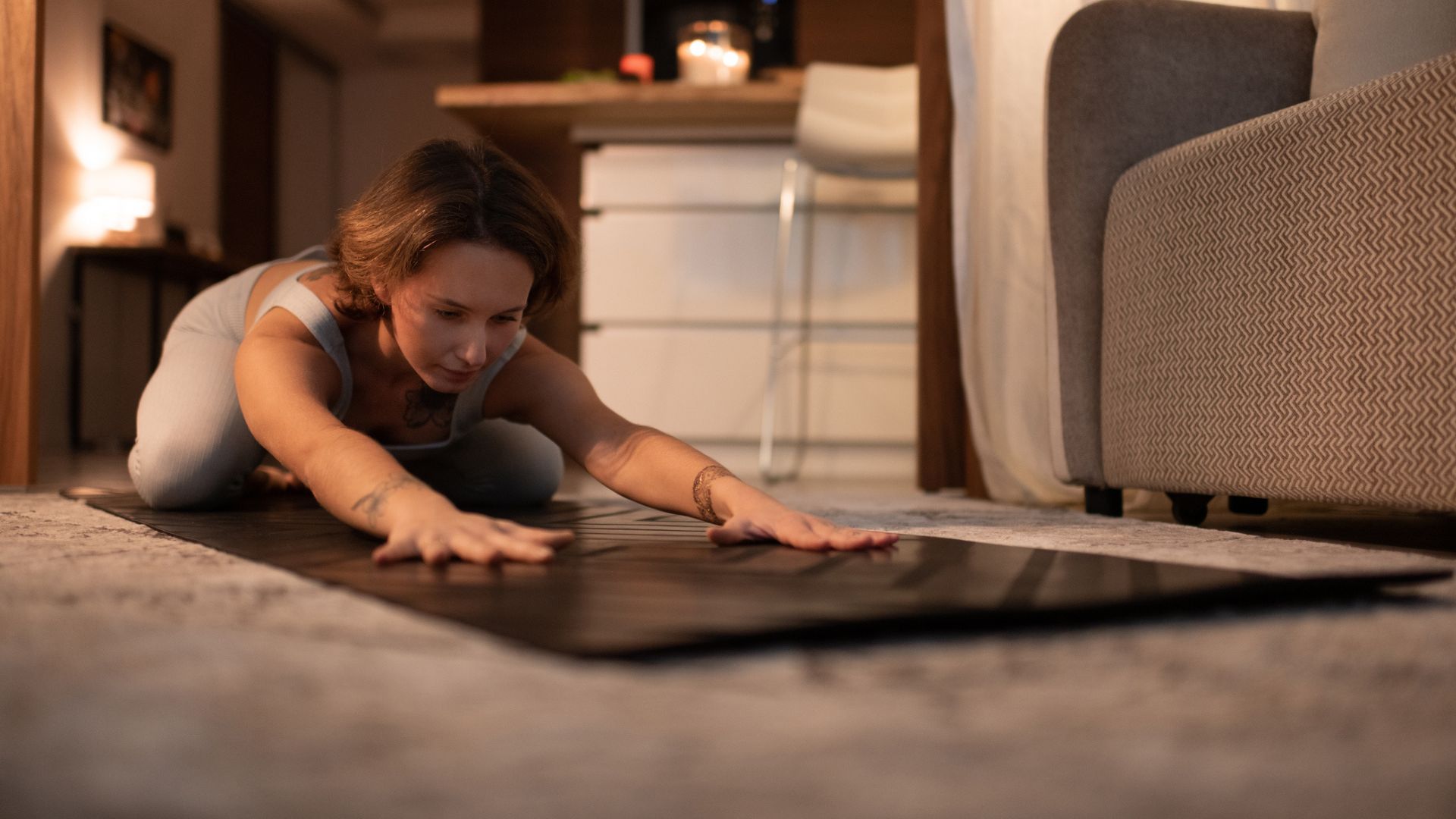
An evening routine can be a game changer when it comes to settling down for bed, destressing, and getting out any anxieties before you go to sleep. In turn, this can help you sleep better and wake up feeling refreshed.
For example, it's a good idea to hydrate before bed - but not so much that you need to keep getting up to use the bathroom. You may also like to read a book instead of looking at your phone to wind down, light a candle for some low-level lighting, and use a lavender sleep spray. Lavender is an essential oil known to improve relaxation and sleep quality.
26. Go to a forest

Ever heard of a nemophilist? It's a very old-fashioned word for someone who loves the forest and being surrounded by trees. Adopting a few nemophilist tendencies could be the route to feeling happier.
The deep green and brown colours of the leaves and earth have a restorative effect on the mind and body and the smells emitted from the ground, especially when wet, have been proven to reduce levels of cortisol in the body - the stress hormone.
27. Try meditation
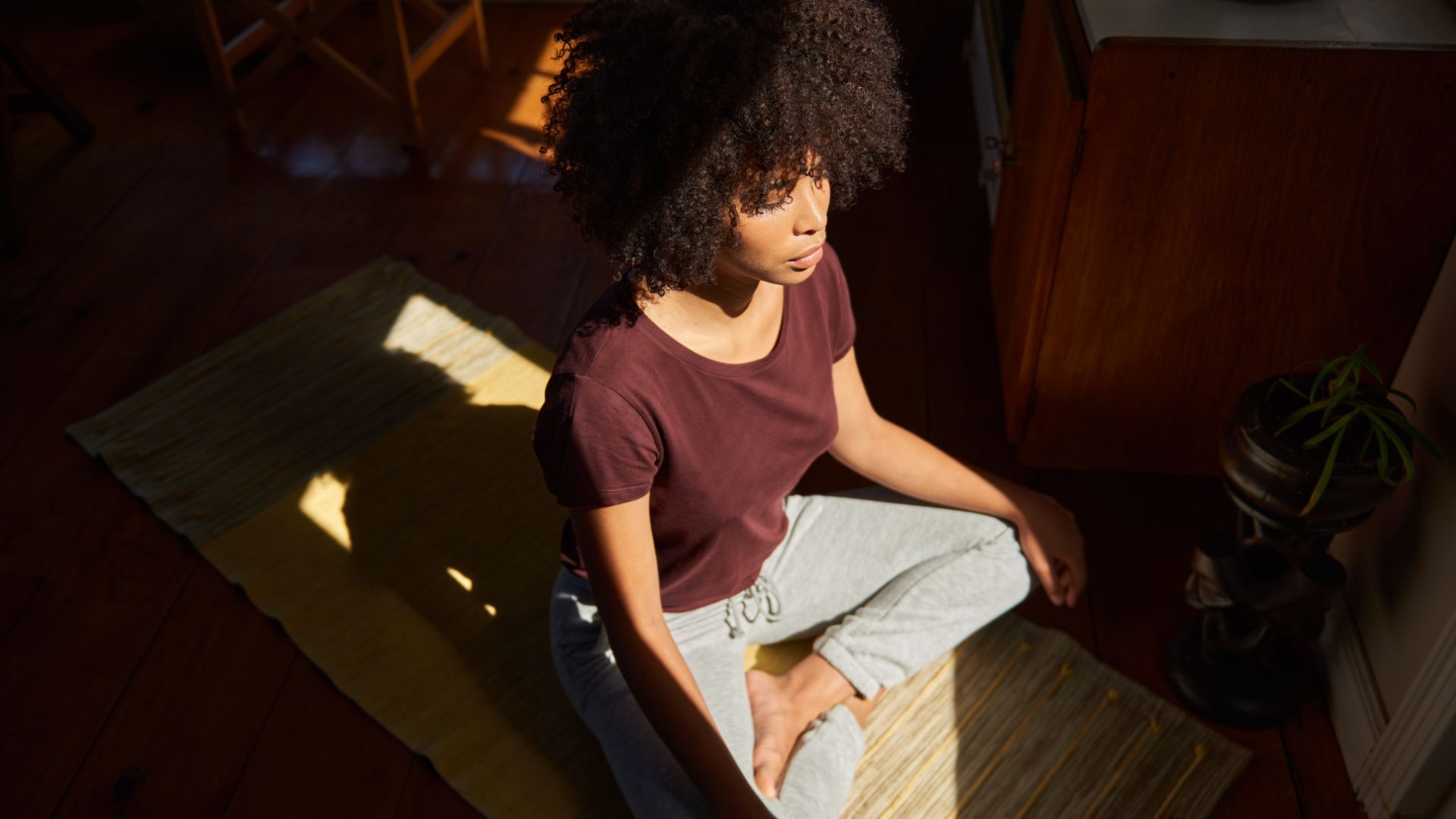
Meditation is a widely practised routine to lower stress levels, relax, and unwind after a long day. It can also help you to settle any anxieties you might have by ridding your brain of streams of thoughts.
If you manage to create a positive meditation routine for at least eight weeks, some MRI studies show, it can actually shrink the amygdala - the part of the brain where you experience stress.
28. Buy some flowers
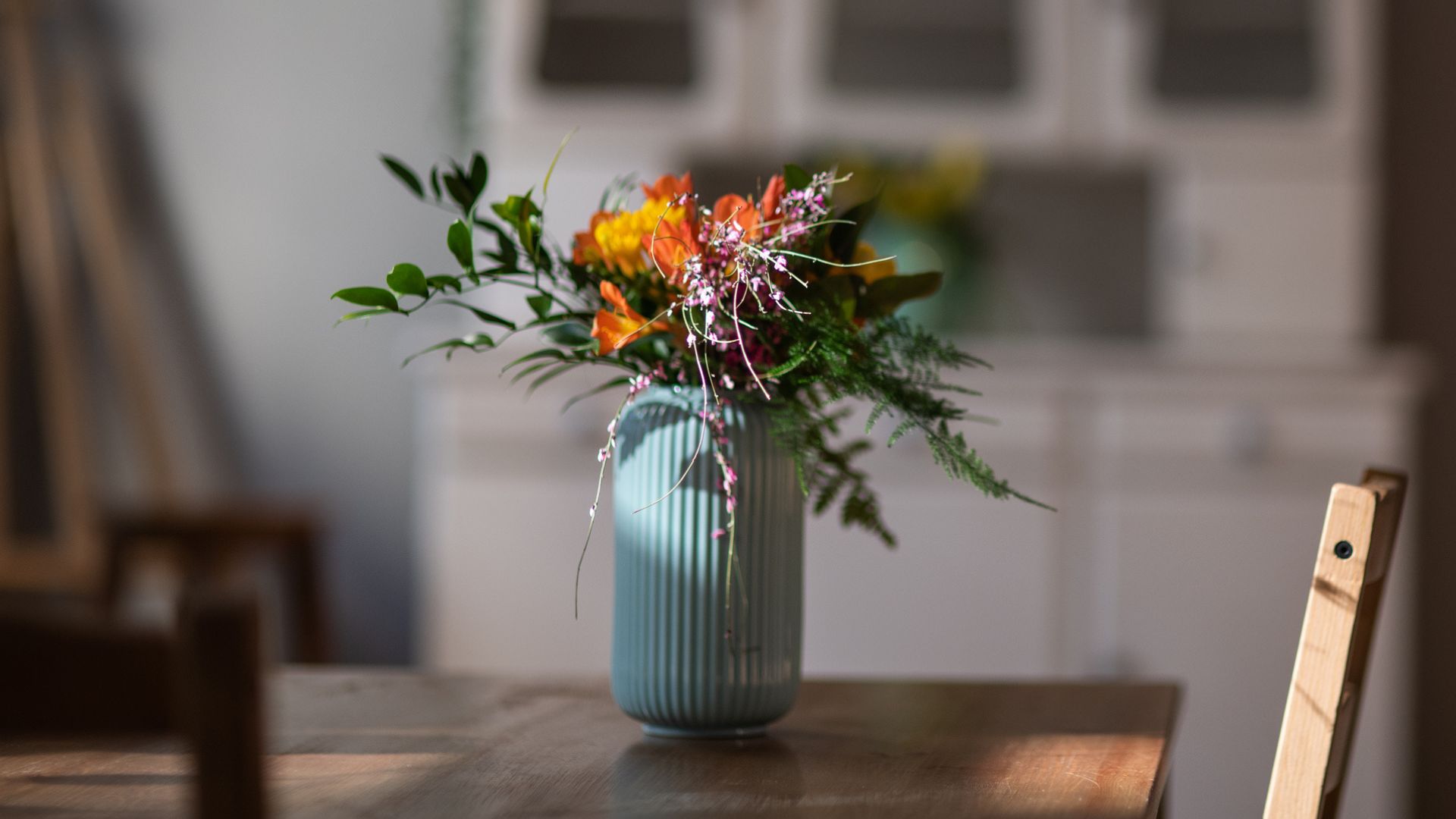
Flowers, with their fragrant aromas and bright colours, have been known to trigger the release of dopamine in the brain - known as the 'pleasure' hormone. This hormone is associated with positive emotions like joy, happiness, and love.
Having flowers in a vase near where you work or get ready in the mornings can be a reminder of the positive things in life as well, helping to give you a happiness boost first thing in the morning.
29. Cook your favourite meal

Just like cleaning, cooking isn't everyone's idea of a good time. However, if you enjoy cooking, it can be the perfect way to destress and make you feel happier in the evenings. It's been known to ease restlessness and lower cortisol levels, offering a welcome distraction from the stress of work and life outside the home.
Not only that - you'll have an immediate feeling of accomplishment when your meal is ready, boosting self-confidence and self-esteem.
30. Go for a swim

If you feel calmer and more relaxed anytime you're close to a body of water, you're not the only one. This is known as Blue Mind theory and it describes the meditative state that many people fall into when they're in the water.
So, if you're looking to lower your stress levels and boost your happiness, find your local swimming pool. Needless to say, you'll also benefit from the mental health-boosting effects of exercise when you're done as well.
31. Practice gratitude

If you're feeling low, the idea of 'practising gratitude' can feel difficult, to say the least. However, it's often recommended by therapists and meditation practitioners as a way to get in touch with the present moment and what's truly important to you.
Taking a moment to remember all the positives in your life can help pull you out of a rut and start feeling better in no time.
32. Take a break
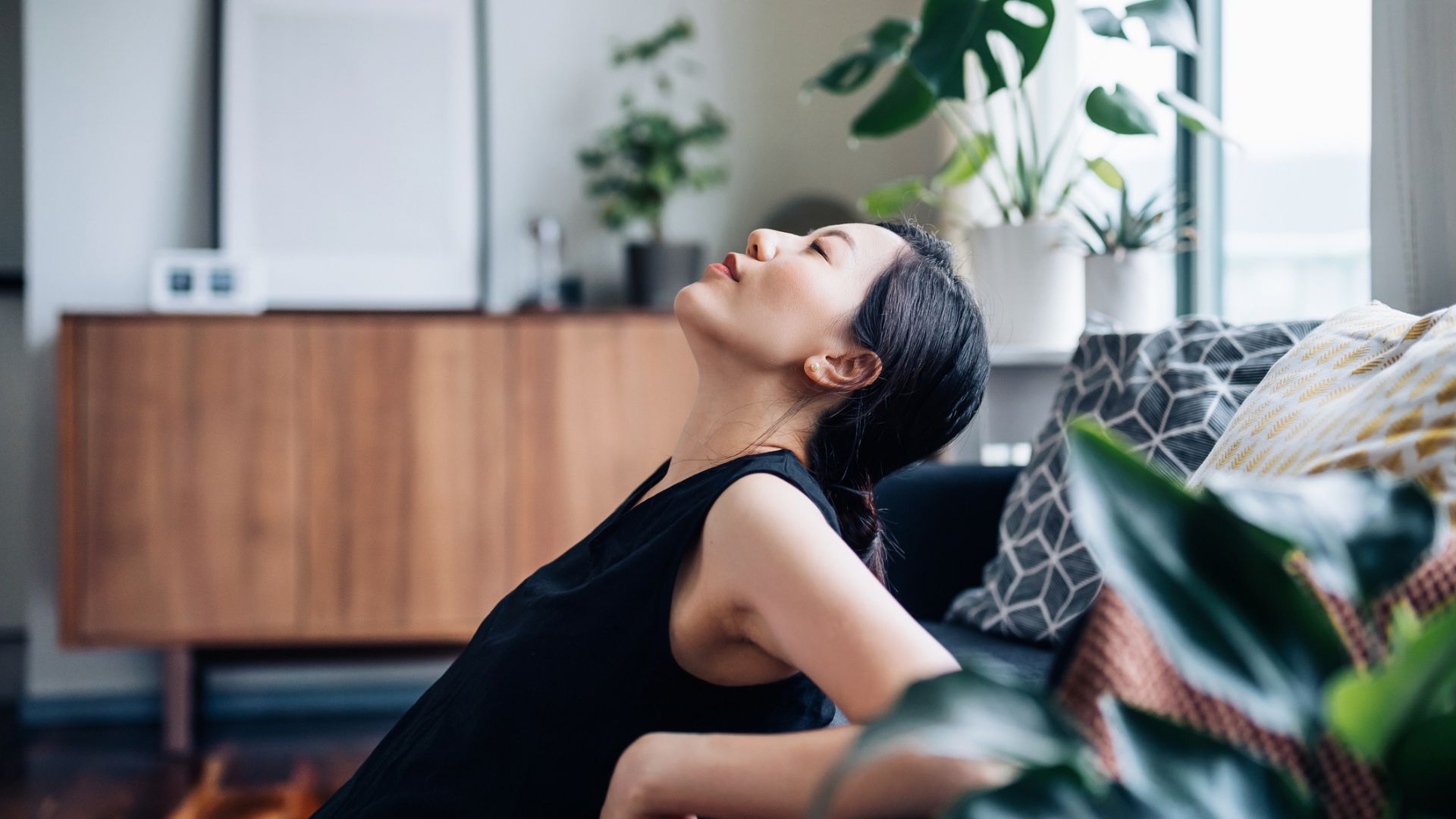
Sometimes all we need to feel happier is a little time away from regular life. Everyone needs a moment to pause, to rest, and to focus on their priorities outside of work for a while.
One of the sure-fire ways to make yourself feel happier is to take time out of your regular day and do something different. That could be a holiday, a day off, or it could be as simple as changing up your evening routine and trying something new.

Grace Walsh is woman&home's Health Channel Editor, working across the areas of fitness, nutrition, sleep, mental health, relationships, and sex. She is also a qualified fitness instructor. In 2025, she will be taking on her third marathon in Brighton, completing her first ultra marathon, and qualifying as a certified personal trainer and nutrition coach.
A digital journalist with over seven years experience as a writer and editor for UK publications, Grace has covered (almost) everything in the world of health and wellbeing with bylines in Cosmopolitan, Red, The i Paper, GoodtoKnow, and more.
-
 Do you know what your stems are saying? These are the most popular flowers and what they symbolise
Do you know what your stems are saying? These are the most popular flowers and what they symboliseI break down different flowers and what they symbolise so that you can say more whilst speaking less with a truly beautiful bouquet
By Laura Honey
-
 Celebrities who built their looks around a simple, timeless white shirt
Celebrities who built their looks around a simple, timeless white shirtA white shirt should be in every woman's wardrobe - and these celebrities prove all the ways to expertly style one
By Jack Slater